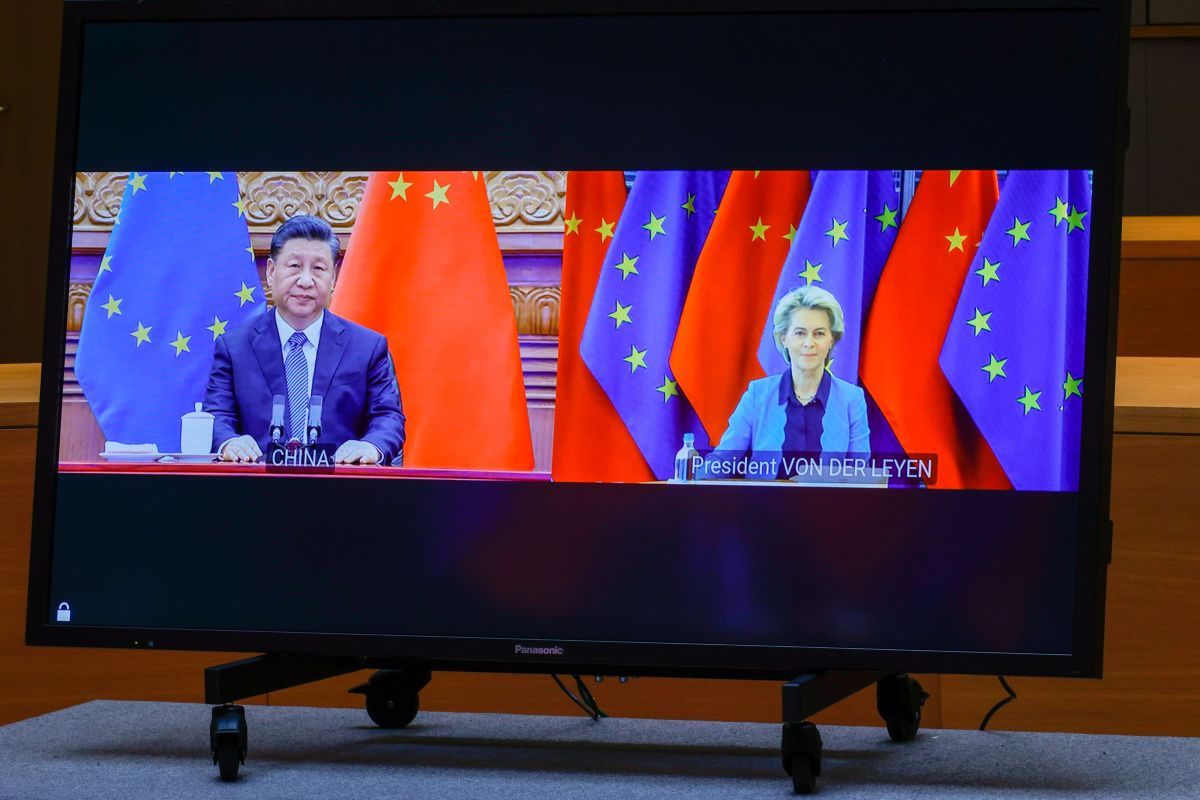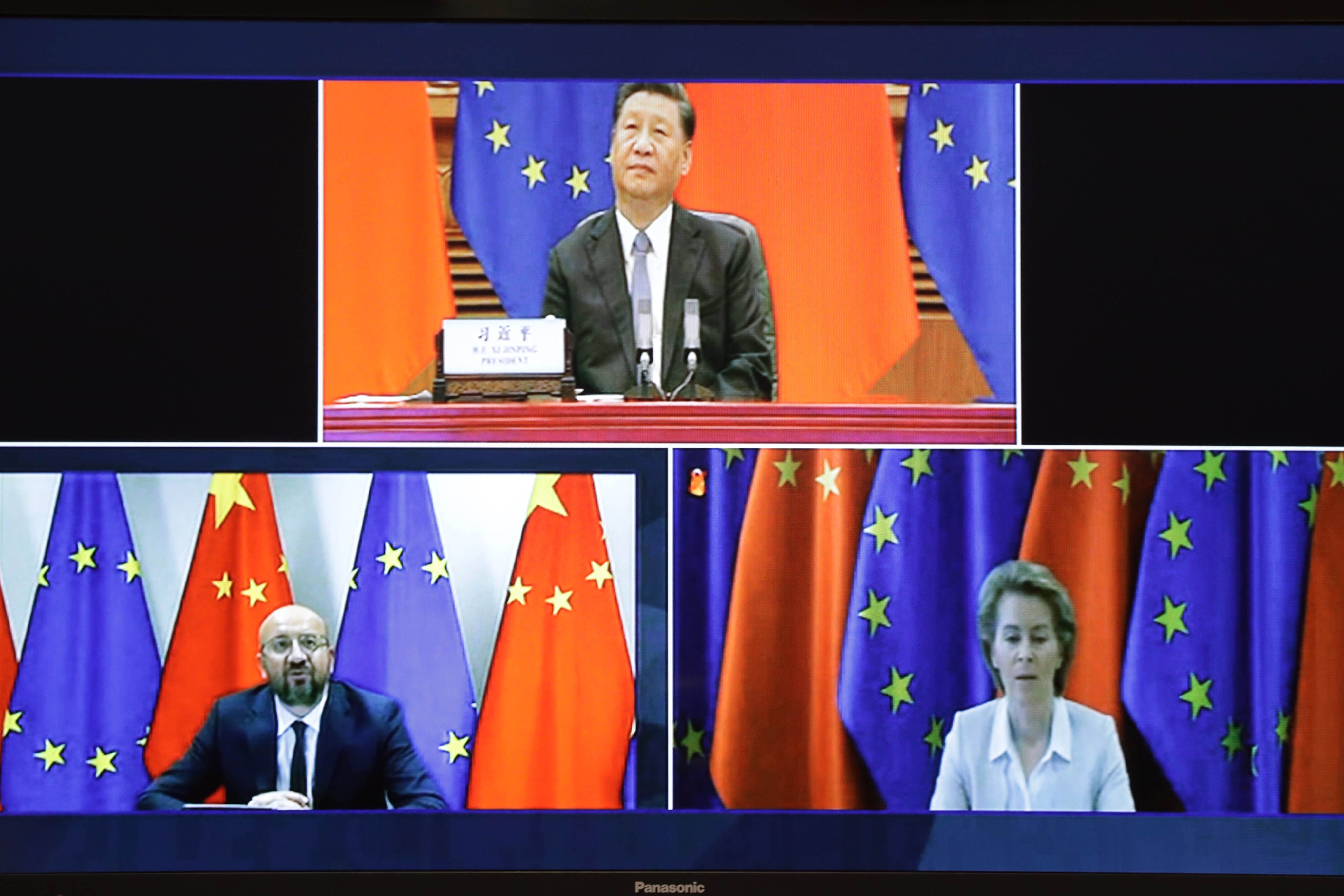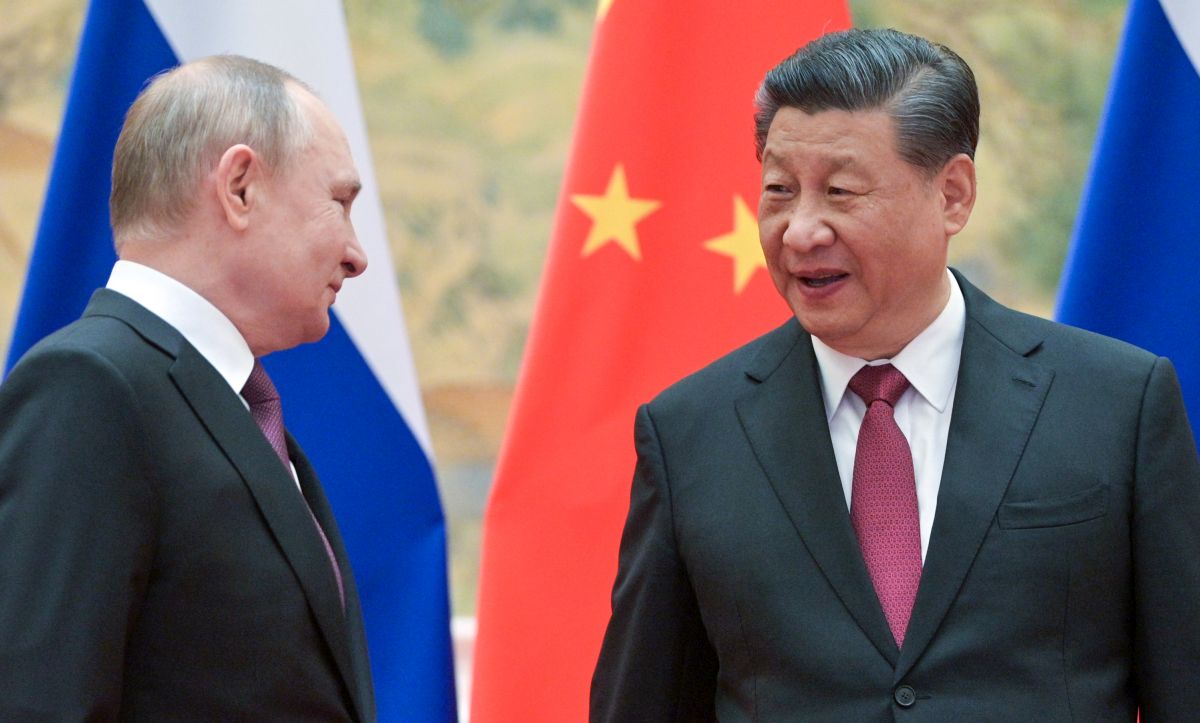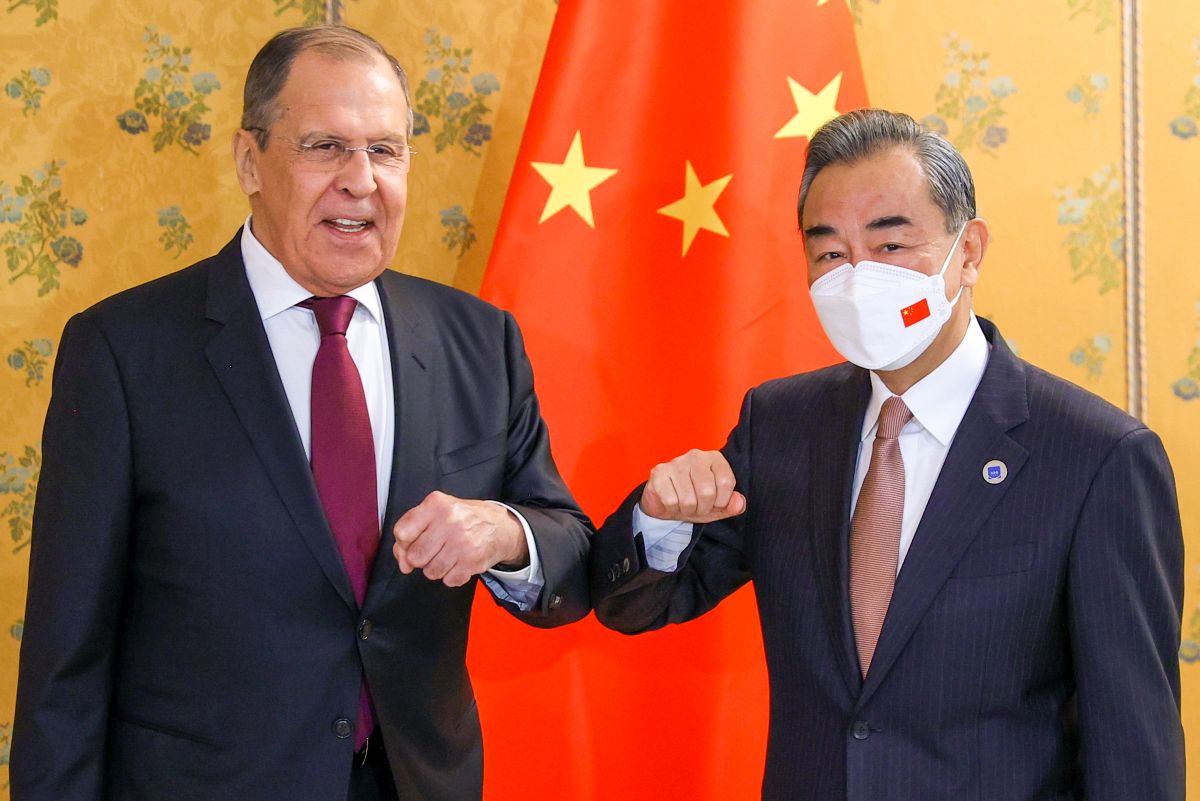EU-China Summit: The EU warns China against further support for Russia
During the EU-China virtual summit on 1 April, representatives of the European Union presented to Chinese leaders the consequences that China may suffer by providing Russia with economic and military support. Bilateral issues were also discussed, including Chinese economic restrictions on Lithuania. The summit confirmed China’s reluctance to change its confrontational policy.
 Pool/Reuters/Forum
Pool/Reuters/Forum
Under what circumstances did the meeting take place?
The summit took place at a time of growing EU-Chinese tensions caused both by China’s confrontational policy towards the EU and China’s political support for Russia in its aggression against Ukraine. The previous EU-China summit was held in June 2020, and the parties concluded negotiations on an investment agreement in December. Since then, disputes have become dominant in EU-China relations. In March 2021, the EU imposed sanctions on four Chinese officials for violating human rights in Xinjiang. China responded by imposing disproportionate countersanctions. In 2021, the topic of China’s economic restrictions on Lithuania for deepening its relations with Taiwan was also discussed. The ratification of a comprehensive investment agreement concluded in December 2020 has been suspended. Last year, the EU discussed its economic dependence on China and the EU’s protective instruments.
The EU points out that the war in Ukraine changes its security situation, which is why it announced before the summit that Russia’s invasion of that country would be the main topic of the meeting. Even before the talks, it was agreed that the parties would not issue a joint statement.
What did the EU want to achieve by talking to China about the war in Ukraine?
The EU wanted to convince China to refrain from providing material support to Russia and to officially declare that it respects the sovereignty of the Ukrainian state. The EU representatives stressed the Union’s sharp disagreement with Russia’s actions in Ukraine. They pointed to Russia’s responsibility for the outbreak of the war. These are facts that are absent from the Chinese narrative on the war. The Union called on China as a member of the UN Security Council to support its peace efforts. However, it also warned China against extending support to Russia by circumventing sanctions or conducting military aid deliveries. The EU emphasised that in case of such material assistance to Russia, it may impose sanctions on China similar to those imposed on the Russian Federation.
In response, the Chinese authorities called for avoiding solutions leading to deglobalisation, citing the possible EU sanctions. They suggested the involvement of the EU in peace negotiations, also as part of building a sustainable security architecture in Europe. They announced the continuation of humanitarian aid for Ukraine.
Was there agreement on bilateral issues?
No progress was achieved in bilateral affairs. European Commission President Ursula von der Leyen and European Council President Charles Michel expressed to China the need for it to lift personal sanctions on members of the European Parliament, stop its restrictions on Lithuania, respect human rights in China, abandon the restriction of civil liberties in Hong Kong, and increase access to the Chinese market for EU companies while also improving the conditions for their operations there. These issues, among others, are to be discussed during the session of the High-Level Trade and Economic dialogue to be held this year by summer. It was also agreed to resume the High-Level Digital dialogue (on cybersecurity) and High-Level Environment and Climate dialogue. The publication of the Chinese summit communiqué while the talks were still in progress, as well as statements by Xi Jinping on Lithuania’s supposed violation of the “one China principle”, quoted by representatives of the Chinese Ministry of Foreign Affairs during the summit, showed that there was no real willingness to change on the Chinese side.
Is a change in China’s policy towards the Russian aggression possible ?
The course of the meeting and the reactions after it did not indicate China’s readiness to change its policy. It continues to support the Russian postulates, including accusations against NATO, especially the U.S., of destabilising the situation in Central and Eastern Europe, and the necessity to approach sanctions cautiously. Secret Chinese economic support for Russia cannot be ruled out. After the meeting, a representative of the Chinese Ministry of Foreign Affairs stated that China would not be specifically avoiding the sanctions, but would maintain normal trade relations with Russia, as it did not consider the sanctions mechanism to be appropriate. China urges that regional and global security should not be built on a Cold War mentality. At the same time, it supports a dialogue between the EU, the U.S., Russia, and NATO, calling for the “legitimate security concerns” of all sides to be considered. In real terms, this means support for the Russian postulates, including ignoring the international subjectivity of Ukraine.
What does possible Chinese material support for Russia mean for the EU?
The EU has made it clear that its stance on the Russian aggression against Ukraine is becoming a factor that defines its relations with its partners. Possible Chinese economic and military support for Russia will strengthen the EU’s perception of China as a rival and will hinder the efforts of some Member States to deepen economic cooperation with China. Material aid from China for Russia may result in the imposition of additional sanctions on China. This would mean strengthening transatlantic cooperation, as the U.S. has declared similar steps. This would be a challenge for EU Member States, including the greater importance of China than Russia as a trade partner for the Union, and could meet resistance from, among others, some EU companies operating on the Chinese market.





